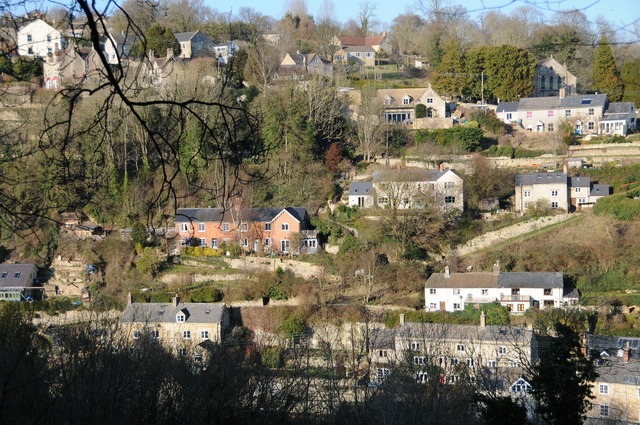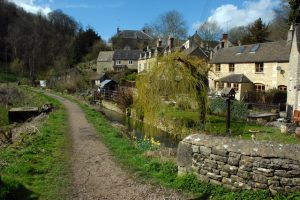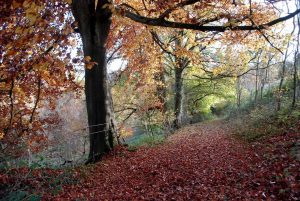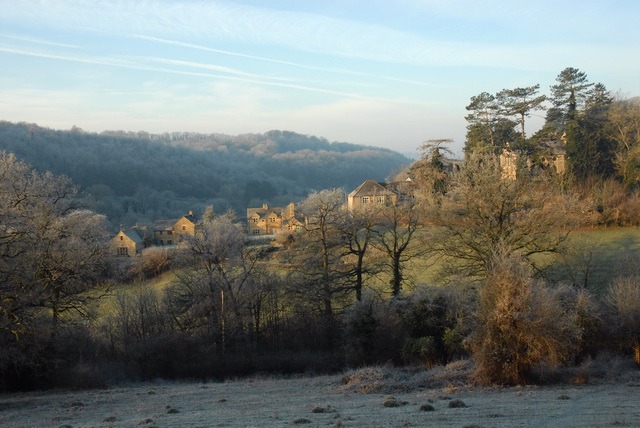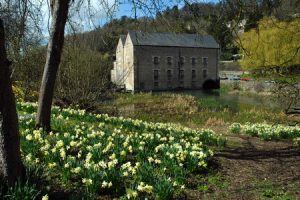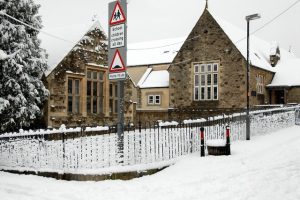History of Chalford
About Us
About our village
The Gloucestershire Parish of Chalford covers two square miles of some of the most beautiful countryside in the whole range of the Cotswolds. It lies four miles south-east of Stroud on the north side of the River Frome, eight miles west of Cirencester, and in and above the Golden Valley.
In this part of Gloucestershire the Cotswolds are cut by deep gorge-like valleys opening out westward into the Severn plain, and having characteristics strikingly different from the shallower combes watered by Cotswold streams feeding the Thames. At Chalford the valleys are Alpine in character, deep, narrow and well wooded.
The remains, and known sites, of many long and round barrows within the confines of the ancient Parish of Bisley indicate that the plateau area of Chalford Hill, France Lynch and Bussage has been an area of continuous settlement for probably at least 5000 years. Stone Age flints have been found in the area, as well as remains of a Roman Villa. Several of the place names in the area are clues to its Saxon and Danish ancestry.
The name Chalford may be derived from Calf (way) Ford, or possibly from the Saxon ealj or Chalk and the Norman Ford, both having the same meaning. Chalford Hill is a quite recent title for the western end of the hill villages above Chalford Valley, its old title being Chalford Lynch. Lynch from the Anglo-Saxon hline means a cultivated terrace following the contours of a hill. France is much more difficult to explain. Some say it is derived from frams-eye (island) or -ea (stream) from the Fram (Frome) river in the valley, thence, perhaps via Francey to France. Others say it is derived from the 17th century Huguenot refugees who settled here to make woollen cloth and silk.
Cloth has been made in the Cotswolds since early medieval times, and Chalford was one of the centres for the manufacture of broadcloth. Its wealthy clothiers built many of the fine houses on the hill, while much of the actual spinning and weaving was carried out in the cottages dotted along the hillside.
Timeline
| 1725 | Chalford Tabernacle Baptist Church already built |
| 1726 | Christ Church (Parish Church of Chalford) constructed |
| 1783-9 | Thames and Severn Canal built |
| 1814 | Road built from Stroud as far as the White Horse Inn |
| 1815 | Road built through the valley bottom |
| 1819 | France Congregational Church built on present site |
| 1820 | Methodist Chapel built |
| 1830 | Road from Bisley to Chalford Church built |
| 1844 | St Michael and All Angels (Parish Church of Bussage) Foundation stone laid |
| 1845 | Railway from Swindon to Cheltenham opened |
| 1857 | St John the Baptist (Parish Church of France Lynch) built |
| 1874 | Chalford Hill School (the British School) built |
| 1894 | Parish of Chalford formed |
| 1897 | Station opened at Chalford (until this time the station for Chalford was at Brimscombe) |
| 1903 | Railcar runs from Chalford to Stonehouse (and later to Gloucester) |
| 1935 | St Mary of the Angels (Roman Catholic Church) built |
| 1940 | Price of return bus fare from Chalford to Stroud is 6d (2 1/2p) |
| 1964 | Closure of railcar service |
| 1986 | France Congregational Church sold for conversion to private use |
